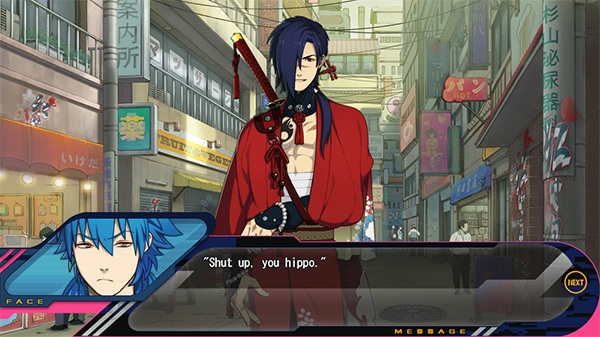
- Created By bellpickle
on domestic violence and how we view its victims
Firstly, I realize this is basically turning into a rant-y social justice blog, interrupted only by the occasional post about a certain BL visual novel. But I feel like I need this right now, and I don't currently have very many outlets for this sort of thing. So thank you all for being good sports about it. ^^
So basically, I went on a small rant on Tumblr about the whole Rihanna/Chris Brown debacle and how it's unfair to say that Rihanna is "crazy" or "stupid" for getting back together with him. I went on to say that such remarks are a form of victim-blaming. I received a very courteous rebuttal to my argument, and the comment that stuck out to me most was to the effect of, "Concerning the violent incident, she was a victim, but in choosing to go back to him, you can't really call her a victim."
And I do believe this person is technically correct. It's not as though Rihanna or any other victim of abuse has no sense of agency or free will. Clearly she chose to go back to him. But when I call Rihanna a victim, I mean it in a broader, kind of more abstract sense. I do think she was foolish to go back to someone who abused her. But if Rihanna is foolish, then the whole music industry and large segments of society are just as foolish.
When commenting on inviting Chris Brown to perform during the Grammys that aired just last night, one of the Grammy producers said, "We’re glad to have him back. People deserve a second chance." Which is the exact same kind of language abuse victims use when forgiving their abusers. And in the immediate aftermath of the violent incident, there were TONS of people, women included, who were supportive of Chris Brown and said things like, "She probably said something that provoked him, so she deserved to get hit." Which is something victims of abuse say to themselves all the time.
Statements like "Rihanna is stupid, crazy, etc" imply that the problem is specific to her and that any sensible person would know not to forgive him. Such statements also fail to take into consideration all of the forces in society that contributed to her decision.
And this is not some isolated event. It's indicative of how we as a society view domestic violence and its victims. I cannot tell you how frustrating it is to see victims of abuse defend Chris Brown ("he's been punished enough, he's so talented, we should forgive him"). But I KNOW these people aren't just "stupid," "crazy," or "weak" and that these women have likely internalized all of the victim blaming/abuser forgiving statements that are so prevalent throughout our society.
"Whitewashing" in Hollywood Movies
There's recently been controversy over a half-Ethiopian supporting character in the book "Warm Bodies" being played by a 100% Caucasian girl in the movie. This website aptly states:
"Personality is what matters in a character, not superficial indicators like height or hairstyle or even skin color, and the personalities of the cast all fit beautifully.” –Warm Bodies author Isaac Marion
Would that “having the right personality for the character” was the only barrier for actors of color in the movie industry.
This statement is a cop out. Given that black actresses still face systemic disadvantages and discrimination in Hollywood, it’s hard to believe that no actresses of color were able to fit the needed “personality” for this established character of color.
Both of these statements gloss over the fact that Nora was a woman of color in a story landscape that primarily featured white characters. While the film is listed as having some actors of color–Cory Hardict will play “Kevin” (a character not in the book) and Ruth Chiang will play “Corpse Attacking Julie”–the main leads are played by white British actor Nicholas Hoult (Skins) and white Australian actress Teresa Palmer (The Sorcerer’s Apprentice). Conversely, did the production think to check if any actors of color could fit the “character traits” or “personalities” of these lead roles?
This might not seem like a big deal, but media portrayals of people of color has a huge effect on society, especially in areas where the population is overwhelmingly white. I think the consequences of "whitewashing" becomes apparent in interviews like this one with Donald Glover, who describes the malicious backlash he faced when suggesting he should be the new actor for Spiderman, including one commenter who said, "There are no black people like Peter Parker."
Whitewashing the main cast of movies and relegating actors of color to minor supporting roles only reinforces the belief that white people can be whatever or whomever they want, but minorities are limited to their stereotypes. It's incredibly harmful and it pisses me off that Hollywood studios are so afraid of losing money that they can't take the small risk of casting a non-white actress in a supporting role.
For those who are interested in DMMd but can't play it...
While playing through the translated common route, I sent a bunch of screencaps to one of my cousins, who is hugely interested in playing this VN, but can't get the darn thing to work on her computer.
So if any of the people reading this are in a similar position, here are a few of my favorite lines thus far. :P





Gun Control in NY Schools
I participated in an online open forum on gun control in NY public schools. Here are some of the comments that popped up during the conversation. (I tried to include the viewpoints of people on all sides of the issue.)
"Imagine, due to the rampant levels of racial profiling, the consequences on the learning environment and achievement for youth of color, particularly boys and young men, if they see their teachers or campus security strapped with a gun." [In response to a poll in Cali asking whether teachers should be allowed to have guns in the classroom.]
"Young people, especially our high school students should be given the opportunity to be part of the decision making process at the schools. Work alongside with them to set policies and procedures around safety and violence. Give them an opportunity to reclaim their schools as their own, and I can guarantee you they will not let us down."
"When I was a middle school teacher, one of my students told me he had brought a gun to school because he was worried about getting jumped on the way home from school. Have you ever felt like you needed to protect yourself at school or in your neighborhood?"
"I've held a gun, and quite frankly the pleasure of the weight of the tool, the thrill of it's release, and the power that there is in holding it are part of the problem. It's instant power/gratification. It's intoxicating like a drug"
"I feel like most people i know have a gun of their own, or at least have easy access to one. There's a strong value of guns that I think comes, in part, from the culture in Appalachia. It's very common for young people to know how to handle guns, and have one around. Whether it be a defense weapon, a hunting tool, or a hobby"
"Knowing the people in your neighborhood. Building community through civic engagement. Having open dialogues about issues in your community. Being HONEST about our strengths and weaknesses. This is what creates real safety."
"What really gets me is that there's more regulation on birth control than on guns. And the same people denying regulation for one, push it for the other. Why is it ok for the government to decide when and how we create life, but not when and how we take it?"
"Guns are becoming a bigger fear than diseases or car accidents for lots of people. While there is a LOT of violence all around, I think a lot of this has to do with people talking about it. The media and growing social connectivity can really pump up the power of certain stigmas. I think a positive step in terms of decreasing fear and violence would be to change the way we share and receive these stories, particularly from the media. The word propaganda comes to mind almost constantly when I think about gun control issues recently"
